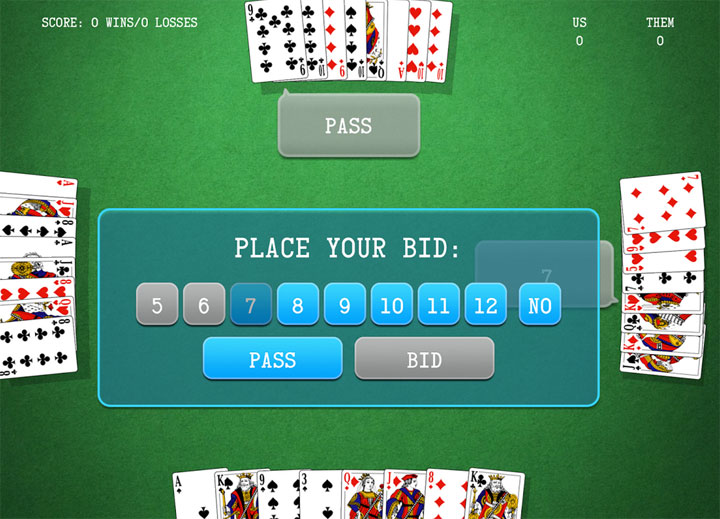At the Caleb Village seniors home in North Battleford, Sask., a group gathers every week to play – sometimes as late as midnight – a card game called Kaiser that traces its roots to Saskatchewan and parts of Quebec.

There’s another group that plays it at the legion in Nipawin, Sask. One of those players says he’s played it for 60 years.
So you can imagine their surprise to learn that the game’s name is trademarked and that it’s now the subject of a lawsuit between two Saskatchewan computer programmers: one with an online version who owns the rights to the name, and the other who has recently developed an app.
“Basically he thinks he has a valid trademark and I think it’s not a valid trademark,” said Kaiser app designer Tod Baudais, who lives in Thode, south of Saskatoon. “People are almost insulted that this guy has trademarked some of their family heritage.”
Kevin Currie has been selling computer versions of Kaiser since the 1990s and is the current holder of the trademark. He said he’s filed the lawsuit because he has to defend what’s legally his.
“Everybody makes me out to be the bad guy because of what I’m out to protect,” said Currie, speaking from Saskatoon. “I’ve put a lot of money into this.”
Kaiser is a trick-taking game played with a 32-card deck. If standard playing cards are used, the penalty card, or the “kaiser,” is the three of spades. The bonus card is the five of hearts.
John McLeod, who runs the online card games website pagat.com based in England, said the game may have been born in Quebec in the late 19th century under the name Les Rois, which he says was also played with specially produced cards under the name Lost Heir.

Get breaking National news
During the First World War, the game was reinterpreted with the four suits representing England, France, Germany and Russia, McLeod says. The kaiser card was named for Kaiser Wilhelm II, while the five of hearts was called Joffre, for the French general Joseph Joffre.
“It may have been contact between soldiers from different parts of Canada serving in Europe in WWI that led to the spread of the game from Quebec to Saskatchewan and maybe even Alberta,” McLeod wrote in an email, noting the game is still known as Joffre in Quebec.
Currie programmed and sold his first computer version of Kaiser in the 1990s. To do so, he said, he licensed the rights to the name from Sylvester Gayowski of Prince Albert, Sask., who registered it in 1985 and sold decks of cards specifically meant for the game.
In April of this year, Currie obtained full rights to the trademark and says in the lawsuit that about 12,000 memberships have been sold to play his online version, which allows Kaiser players to compete against each other over the Internet.
“I’m protecting the public so there’s no confusion over what they buy.”
According to the Canadian Intellectual Property Office, trademark applications are researched to make sure they aren’t prohibited by the Trade Marks Act. Applications are advertised in the Trade-marks Journal before they are approved.
Registration is prohibited when the mark is the name of the good in any language. An example the department gives is if someone tried to register the word “online.”
“The purpose is to prevent someone from appropriating a clearly descriptive word (or words) and placing legitimate competition at an undue disadvantage in relation to language that is common to all,” explained Lauren Hebert, a spokesperson for Industry Canada.
Baudais said he’s fighting the lawsuit by arguing that the trademark issued in 1985 is invalid because Kaiser was already well-known as a card game in Saskatchewan. He said he’s been collecting names and stories of people who played Kaiser prior to 1985 as part of his defence.
The Encyclopedia of Saskatchewan has no entry for the game and the Western Development Museum says it has no information either.
Lawrence Fisher, 84, who plays with the group in Nipawin, says he learned Kaiser when he was a young teacher on his first job near Bruno, Sask., in the 1950s.
“I really don’t know where these people got it from. They were mostly of German descent.”
Margaret Tipton, 53, who is the administrative assistant at Caleb Village, said she played Kaiser every day at lunchtime when she was in high school in North Battleford in the 1970s.
“My mum and dad knew how to play it. I’m not sure how they learned.”
McLeod said some people in Saskatchewan of Ukrainian descent also call the game Troika, after the three of spades.
“From the information I have managed to collect, the main concentrations of players seem to be in Saskatchewan and Quebec,” McLeod wrote.
Gayowski, the original trademark holder, said he won’t talk about the lawsuit since it is now before the court. He learned the game from his family.
“It was called Kaiser and it was called Three-Spot and some other names,” Gayowski said, although most people knew it as Kaiser.
Currie said it doesn’t matter if people played Kaiser before the trademark was issued, because nobody was using it commercially to describe a card game before 1985.
“It belongs to nobody until somebody claims it and owns it.”







Comments